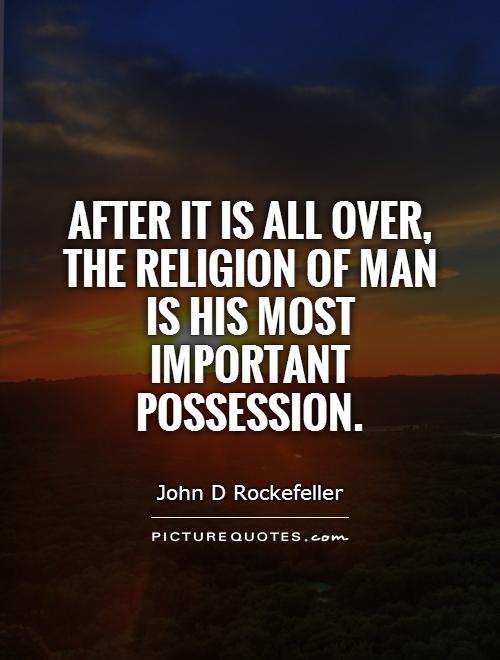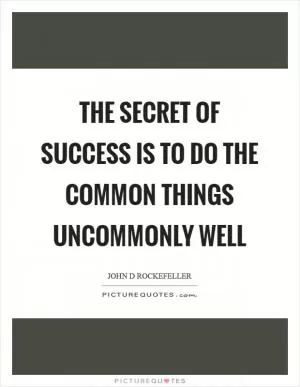
After it is all over, the religion of man is his most important possession

After it is all over, the religion of man is his most important possession
John D. Rockefeller, the famous American industrialist and philanthropist, once said, "After it is all over, the religion of man is his most important possession." These words hold a profound truth that transcends time and resonates with people of all walks of life. In the context of Rockefeller's life and legacy, this statement sheds light on the importance of faith and spirituality in shaping one's character and guiding one's actions.Rockefeller was a devout Baptist who believed in the power of prayer and the importance of living a moral and ethical life. His faith played a significant role in shaping his values and principles, which in turn influenced his business practices and philanthropic endeavors. Despite his immense wealth and success, Rockefeller remained humble and grounded in his religious beliefs, viewing his wealth as a gift from God that he was entrusted to use for the betterment of society.
Throughout his life, Rockefeller donated millions of dollars to various charitable causes, including education, public health, and scientific research. His philanthropy was driven by his belief in the importance of giving back to the community and helping those in need. Rockefeller saw his wealth not as a means of personal enrichment, but as a tool for making a positive impact on the world.
In the context of Rockefeller's words, "After it is all over, the religion of man is his most important possession," it is clear that he viewed faith as the foundation of a meaningful and fulfilling life. Rockefeller believed that one's religious beliefs and values are what ultimately define a person's character and legacy. In the end, it is not material wealth or worldly success that matters most, but the way in which one has lived their life in accordance with their faith and principles.












 Friendship Quotes
Friendship Quotes Love Quotes
Love Quotes Life Quotes
Life Quotes Funny Quotes
Funny Quotes Motivational Quotes
Motivational Quotes Inspirational Quotes
Inspirational Quotes